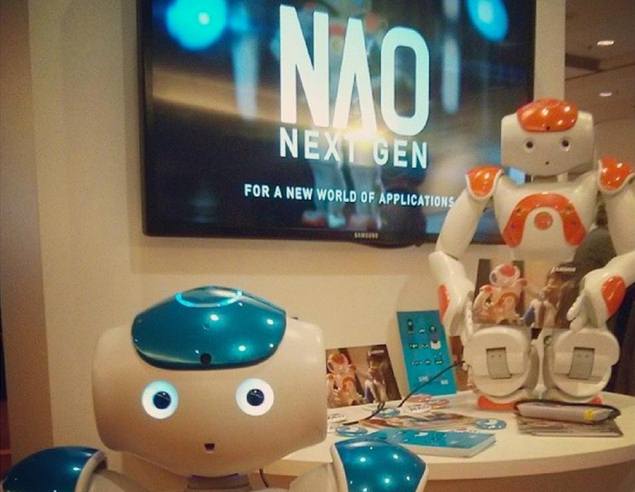- Home
- Science
- Science News
- Researchers working to embed privacy features in humanoid robots
Researchers working to embed privacy features in humanoid robots

Dr. Ian Brown, Associate Director of Oxford University's Cyber Security Centre and Senior Research Fellow at the Oxford Internet Institute, is working to embed privacy in the design of robots.
Robots can record and transmit what they see and hear, Brown's research is trying to find ways to prevent them from unnecessarily revealing the identities of the people they have captured.
Humanoid robotics is an emerging research field that will become increasingly important as robots start to assist people in their daily lives - for example, becoming companions for older people in their homes.
Brown and his Oxford colleague Dr. Joss Wright, are part of a British team of researchers working on this 2 million pounds three-year project examining the implications of robots in public spaces.
The issue is around how much information is gleaned and stored, particularly as these sociable human-seeming devices could lead to us being less guarded about what we reveal.
"When we begin to interact with friendly-looking humanoid robots, our expectations and assumptions shift. New questions arise about how much we trust these devices. Some people might develop an emotional attachment to them, particularly in situations where robots play the role of companions," Brown said.
"It is important, therefore, that we design robots that have privacy embedded into their design, so their information gathering is restricted to what is needed to interact and carry out their tasks, and information about the identity of their human users is kept to a minimum.
"Otherwise, these robot "friends" could betray the trust of the people they come into contact with, passing on information to third parties," Brown said.
The research team, from the Universities of Oxford, Bath, Exeter, Queen Mary University of London and the Bristol Robotics Laboratory, is measuring how people respond to robotic surrogates in public spaces.
The researchers are introducing an advanced-programmed humanoid robot, 'Nao', to the public in Bristol in 2015.
"Humanoid robots have the potential to gather, store and analyse data about our movements and activities," said Wright.
"While they provide opportunities to make our lives easier, the potential loss of control over this information should concern us.
"At Oxford we have been exploring how individuals can maintain control over information about themselves, while still enjoying the potential benefits of robotic technology," Wright said.Catch the latest from the Consumer Electronics Show on Gadgets 360, at our CES 2026 hub.
Related Stories
- Samsung Galaxy Unpacked 2025
- ChatGPT
- Redmi Note 14 Pro+
- iPhone 16
- Apple Vision Pro
- Oneplus 12
- OnePlus Nord CE 3 Lite 5G
- iPhone 13
- Xiaomi 14 Pro
- Oppo Find N3
- Tecno Spark Go (2023)
- Realme V30
- Best Phones Under 25000
- Samsung Galaxy S24 Series
- Cryptocurrency
- iQoo 12
- Samsung Galaxy S24 Ultra
- Giottus
- Samsung Galaxy Z Flip 5
- Apple 'Scary Fast'
- Housefull 5
- GoPro Hero 12 Black Review
- Invincible Season 2
- JioGlass
- HD Ready TV
- Laptop Under 50000
- Smartwatch Under 10000
- Latest Mobile Phones
- Compare Phones
- OPPO Reno 15 FS
- Red Magic 11 Air
- Honor Magic 8 RSR Porsche Design
- Honor Magic 8 Pro Air
- Infinix Note Edge
- Lava Blaze Duo 3
- Tecno Spark Go 3
- iQOO Z11 Turbo
- Lenovo Yoga Slim 7x (2025)
- Lenovo Yoga Slim 7a
- Lenovo Idea Tab Plus
- Realme Pad 3
- Moto Watch
- Garmin Quatix 8 Pro
- Haier H5E Series
- Acerpure Nitro Z Series 100-inch QLED TV
- Asus ROG Ally
- Nintendo Switch Lite
- Haier 1.6 Ton 5 Star Inverter Split AC (HSU19G-MZAID5BN-INV)
- Haier 1.6 Ton 5 Star Inverter Split AC (HSU19G-MZAIM5BN-INV)







![[Sponsored] Haier C90 OLED TV | Dolby Vision IQ, 144Hz OLED and Google TV in Action](https://www.gadgets360.com/static/mobile/images/spacer.png)









